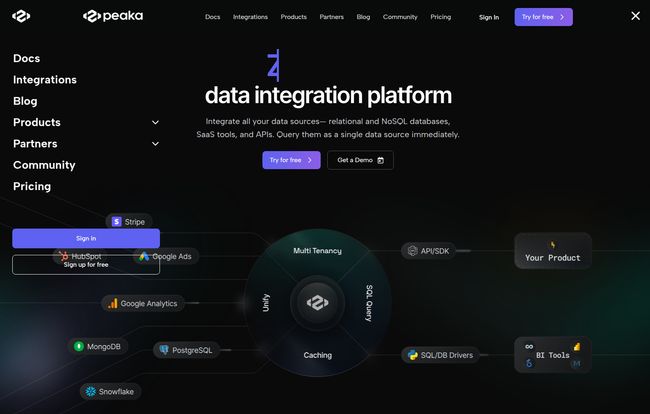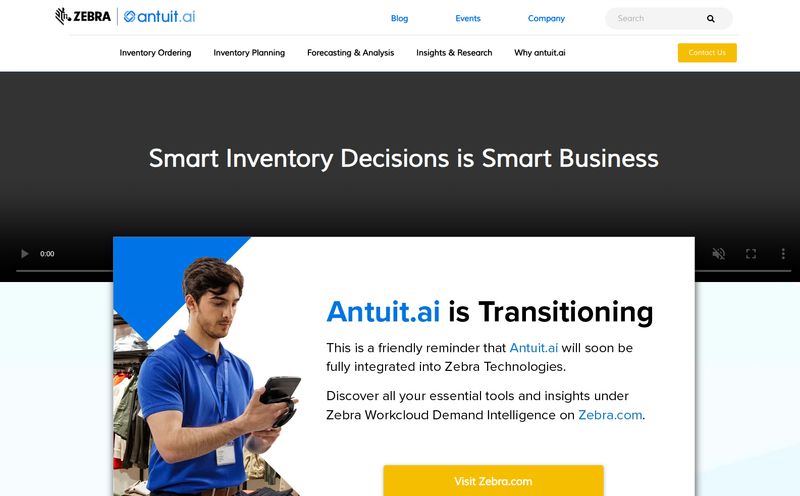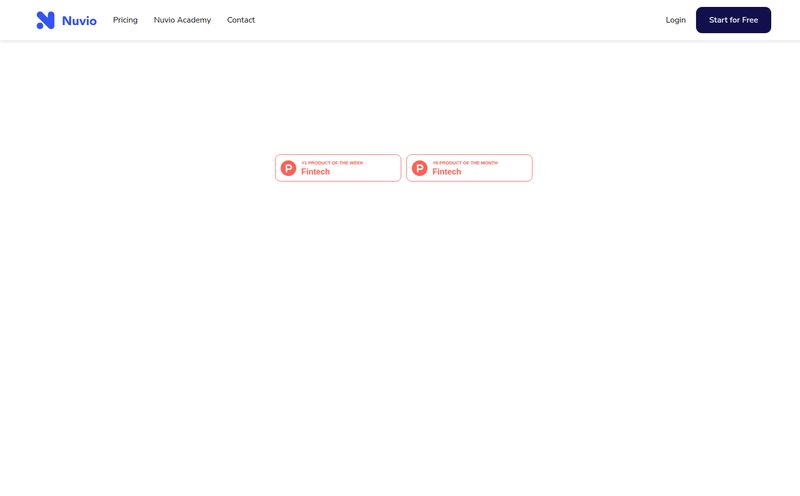Alright, let’s have a little heart-to-heart. If you've been in the data, SEO, or marketing game for more than a few years, you know the pain. That gut-wrenching, soul-crushing feeling of waiting for a data pipeline to run. The classic ETL (Extract, Transform, Load) process. You need to pull data from Google Ads, mix it with Salesforce info, and compare it to your internal PostgreSQL database. Sounds simple, right?
Wrong. It's a week of back-and-forth with the engineering team, a script that breaks if someone looks at it funny, and by the time you get the data, it's already stale. We've all been there. It’s the digital equivalent of trying to assemble IKEA furniture in the dark. With one hand tied behind your back.
So, when I first stumbled upon Peaka, my battle-hardened cynicism immediately kicked in. Another tool promising to solve all my data woes? Sure. But the more I looked, the more I realized this might be... different. It’s not just another tool; it’s a whole different philosophy about how we should interact with our data.
So What Exactly is Peaka? (And Why Should You Care)
Let's strip away the marketing jargon for a second. Peaka is a serverless connector platform. Think of it as a universal translator for your data. It plugs into over 300 different sources – we're talking databases like MongoDB and Postgres, SaaS tools like HubSpot and Stripe, and all sorts of APIs – and presents them to you as if they were one, big, happy database.

Visit Peaka
The magic isn't that it connects to everything; lots of tools do that. The magic is that it doesn't force you to copy, sync, or move all that data into a separate warehouse first. It lets you query everything, right where it lives, in real-time. This concept, often called “federated query” or “zero-ETL,” is a game-changer. It means the data you’re looking at is the actual data, not a copy from three days ago. For anyone in trends analysis or CPC optimization, you know that freshness is everything.
The Magic Trick: How Peaka Pulls Off Real-Time Queries
So how does it do it? The core idea is the Federated Query. Instead of the old, clunky ETL process, Peaka acts as a smart, sophisticated middleman. You write a single SQL query, and Peaka’s engine figures out how to ask the right questions to each individual source—your CRM, your ad platform, your product database—and then it stitches the answers together for you instantly.
Imagine you're a manager and you need a report. Instead of asking three different department heads to go away, compile their own reports, and then trying to merge three different spreadsheets, you just ask your super-assistant (Peaka) one question. The assistant instantly gets the info from each head and gives you a single, unified answer. That’s the power here. Less waiting, less complexity, and frankly, lower costs since you aren't paying to store redundant data all over teh place.
Key Features That Made Me Raise an Eyebrow (In a Good Way)
I’m a features guy. I love seeing how the sausage is made. And Peaka has some genuinely clever stuff going on under the hood.
From APIs to SQL and Back Again
This one is huge for me. We all work with tools that only speak 'API.' Getting that data to play nicely with a traditional SQL database can be a nightmare. Peaka offers bi-directional conversion. It can make a REST API look like a SQL table, so your analysts can query it without learning a new system. It can even do the reverse, turning a SQL query into an API call. It’s about breaking down the communication barriers that create data silos in the first place.
Building Your Data Stack at Ludicrous Speed
The promise of building a data stack in “minutes not months” is a bold one. But when you look at their self-service integration, it starts to make sense. You don’t need to file a ticket and wait two sprints for an engineer to build a custom connector. You find your tool in their library, authenticate, and you're off. This is what people mean when they talk about data democratization. It puts the power back into the hands of the analysts, marketers, and product managers who actually need the data.
Not Just Queries, But Replication Too
While the main event is the federated query, Peaka also supports Instant Replication with CDC (Change Data Capture) and Streaming Ingestion. This means for data sources where you do want a copy for historical analysis or machine learning purposes, it can handle that too, and do it efficiently. It's a nice bit of flexibility that shows they understand that not every data problem has the same solution.
Let's Talk Turkey: Peaka's Pricing Model
Ah, pricing. The moment of truth for any new tool. I was pleasantly surprised here. Peaka’s model seems refreshingly transparent and modern, breaking down into three main tiers.
| Plan | Best For | Key Details |
|---|---|---|
| Free Tier | Developers, small projects, or just trying it out. | $0/month. Limited to 3 users, a few connectors, and 10 mins of shared processing. |
| Pay-as-you-go | Startups and teams that are scaling. | Starts at $1/month base. Pay for what you use (query time, seats, storage). Unlimited connectors. |
| Enterprise | Large organizations with specific security or hosting needs. | Custom pricing. Includes dedicated resources, premium support, and a self-hosted option. |
I’m a big fan of the Pay-as-you-go model. It feels fair. It means a small but growing company isn't punished with a massive enterprise contract before they're ready. The inclusion of an on-page cost estimator is also a fantastic touch of transparency. More companies should do this.
The Good, The Bad, and The Realistic
No tool is perfect, so let’s get real. After digging in, here's my honest take.
The Wins are pretty clear. The sheer number of integrations (300+) is impressive. The core value of eliminating ETL for many use cases is massive. The speed and flexibility are undeniable. And for the C-suite folks reading this, their SOC 2 Type 1 & Type 2 compliance means they take security seriously, which is a non-negotiable these days.
Now for the potential hiccups. The platform suggests that some advanced querying might require SQL knowledge. That's fair, it's a powerful tool, not a magic wand. Also, while the pay-as-you-go model is great, a small company with extremely high query volume could see costs climb. It's something to monitor. The biggest philosophical hurdle is the reliance on Peaka's infrastructure. Some might argue this creates vendor lock-in; however, I think the Enterprise plan's self-hosted option is a direct and effective answer to that very valid concern.
Who is Peaka Really For?
In my opinion? Peaka is for the impatient. And I mean that as a compliment.
It's for the data analyst who is sick of being a bottleneck's bottleneck. It's for the marketing team that needs to merge campaign data with sales data today, not next quarter. It’s for the lean startup that needs to be incredibly agile and can't afford to hire a 5-person data engineering team right out of the gate. It's also for established companies that want to innovate on a new project without disrupting their ancient, creaking data warehouse.
Final Thoughts: A Breath of Fresh Air or Just Hot Air?
I've seen a lot of tools come and go. Most are just a new coat of paint on an old idea. Peaka feels different. It’s a foundational shift. It’s not trying to make ETL faster; it's trying to make it obsolete for a huge number of common tasks. It's a practical, well-designed solution to a problem that has plagued us for decades.
It's not a silver bullet that will solve every data problem on earth, but it is a powerful, sharp, and wonderfully simple tool for the right job. And in a world of ever-increasing complexity, that kind of simplicity is a breath of fresh air.
Frequently Asked Questions about Peaka
- What in the world is a PCU?
- PCU stands for Peaka Compute Unit. It's just their way of measuring processing power. Think of it like a gallon of gas for your queries. The pricing page mentions a PCU is equivalent to an 8vCPU/32GB compute unit, which gives you a decent technical benchmark.
- How does Peaka handle data storage?
- Primarily, it doesn't! That's the beauty of the federated query model. It queries data where it lives. Storage costs only come into play if you use features like caching or the 'Peaka Table' to intentionally store materialized views or replicated data.
- What's a "Peaka Table"? Is it just a regular table?
- Pretty much. It's a table that lives within Peaka's own managed storage. It's useful for when you want to save the result of a complex, cross-source query so you can hit it again and again without re-running the whole federated process. It’s a smart optimization feature.
- Can I really connect to something like Google Sheets and my MongoDB at the same time?
- Yes. Absolutely. That is the entire point. You can write a single query that joins data between a simple Google Sheet and a complex NoSQL database as if they were in the same system. It's pretty wild to see in action.
- Is it secure?
- They seem to take it very seriously. Achieving SOC 2 Type 1 and Type 2 compliance is a rigorous process that involves third-party audits of their security controls and practices. It’s a strong signal that they've built a secure, enterprise-ready platform.
Reference and Sources
- Peaka Official Website
- Peaka Pricing Information
- What is a Federated Database System? - TechTarget
- About SOC 2 Examinations - AICPA



